IELTS Academic Reading ‘Greying Population stays in the Pink’ Answers
Table of Contents
Limited-Time Offer : Access a FREE 10-Day IELTS Study Plan!
The IELTS Academic Reading: Cambridge Reading Sample; ‘Greying Population stays in the Pink’ with answers. The post will discuss the answers to questions 14-26. The headline of the passage is ‘Greying Population stays in the Pink’
Greying Population stays in the Pink
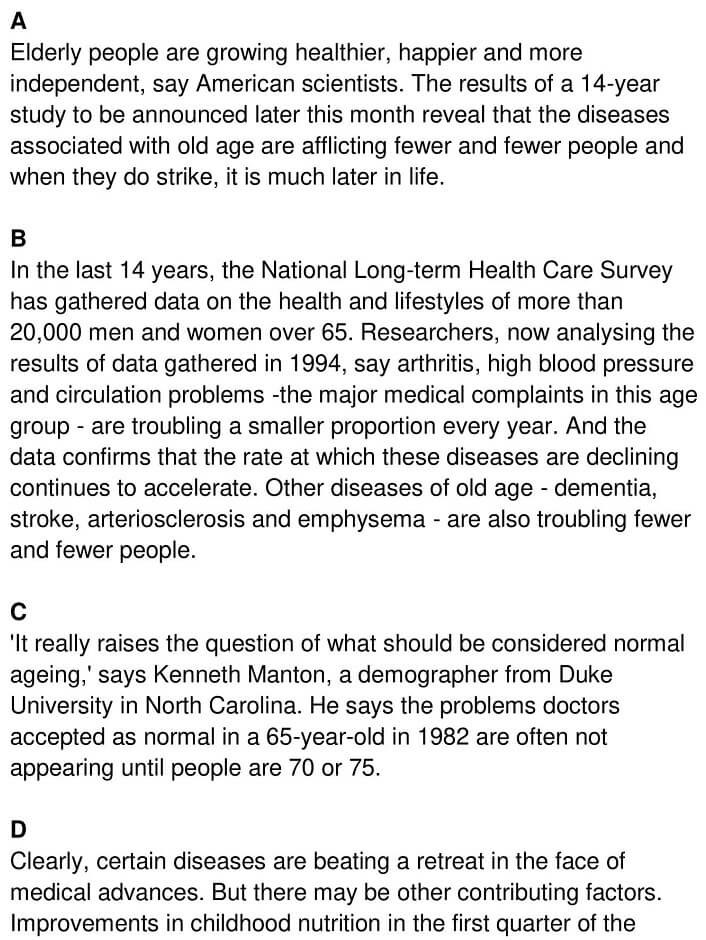
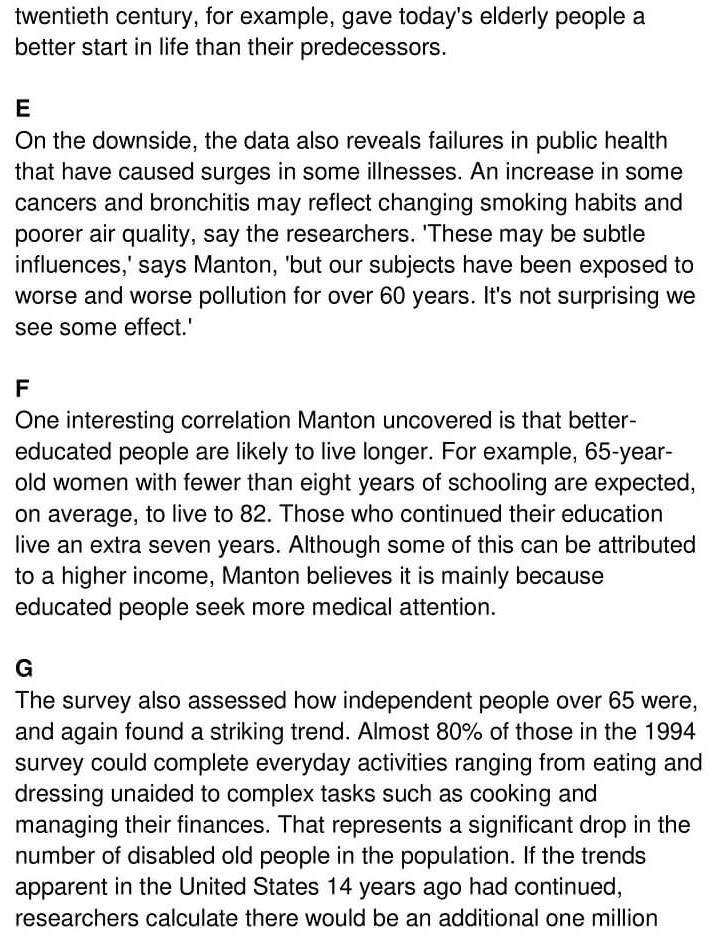
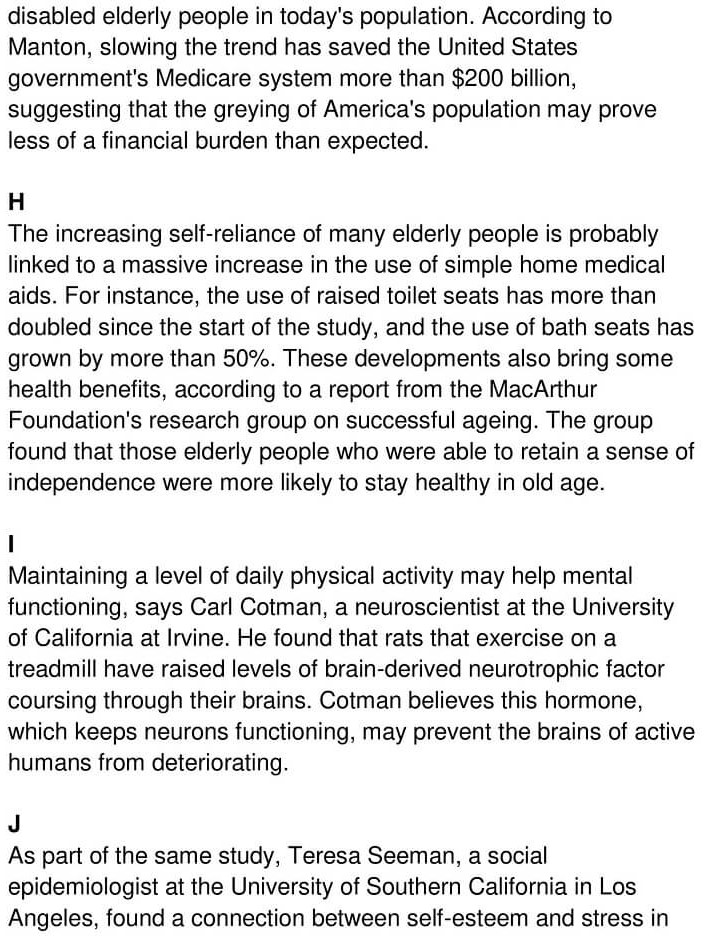
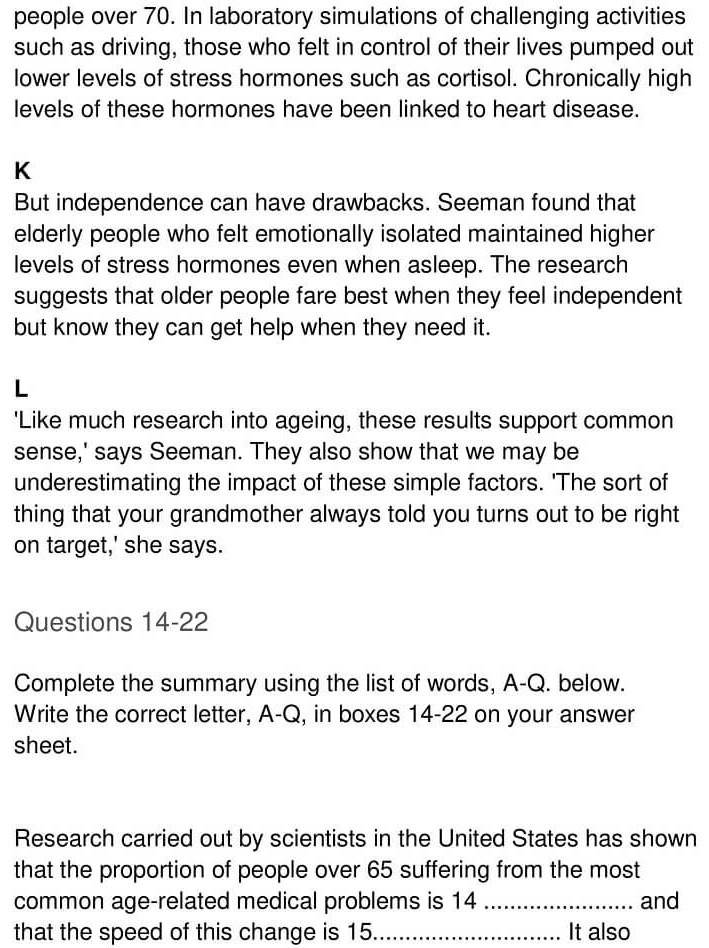
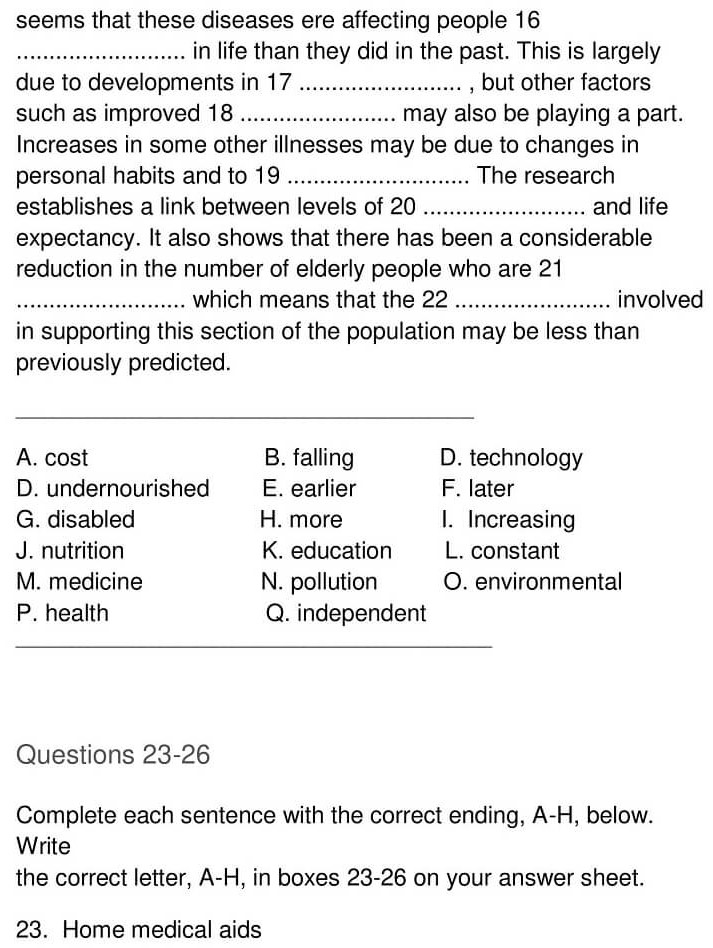
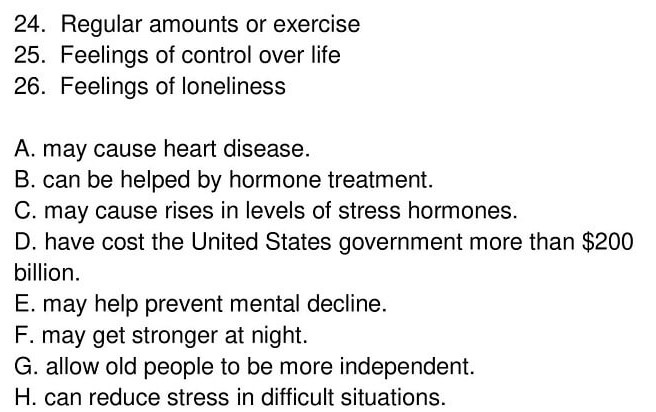
Answers
Unlock Answers
| Question Number | Answers | Explanation |
|---|---|---|
| 14. | B | Paragraph B refers to the fact that in the last 14 years, the National Long-term Health Care Survey has ‘gathered data on the health and lifestyles’ (research carried out) of ‘more than 20,000 men and women over 65’ (proportion of people over 65). Researchers, analysing the results of data gathered in 1994, say ‘arthritis, high blood pressure and circulation problems – the major medical complaints’ (the most common age-related medical problems) in this age group – are ‘troubling a smaller proportion every year’ (the number is decreasing or falling). Hence, the answer is B (falling). |
| 15. | I | Paragraph B mentions that after analysing the results of data gathered in 1994, researchers are saying that arthritis, high blood pressure and circulation problems – the major medical complaints in this age group – are troubling a smaller proportion every year. The data confirms that the ‘rate at which these diseases are declining’ (speed of the change in effect of the major yet common diseases among the age group of 65 and above) continues to ‘accelerate’ (increasing). Hence, the answer is I (increasing). |
| 16. | F | Paragraph C states that Kenneth Manton, a demographer from Duke University in North Carolina, had said that the ‘problems doctors accepted as normal in a 65-year-old in 1982’ (arthritis, high blood pressure and circulation problems) are often ‘not appearing until people are 70 or 75’, that is, these diseases are affecting people much later in life than they did in the past. Hence, the answer is F (later). |
| 17. | M | Paragraph D points out that ‘certain diseases are beating a retreat’ (caused at a later stage of life) ‘in the face of medical advances’ (largely due to developments in medicines). Hence, the answer is M (medicine). |
| 18. | J | Paragraph D notes that ‘certain diseases are beating a retreat’ due to medical advances. But there may be ‘other contributing factors’ (factors that are also playing a part), like ‘improvements in childhood nutrition’ in the first quarter of the twentieth century, that ‘gave today’s elderly people a better start in life than their predecessors’. Hence, the answer is J (nutrition). |
| 19. | N | Paragraph E reveals that the data also reveals ‘failures in public health’ that have caused ‘surges in some illnesses’ (increases in some other illnesses). An increase in some cancers and bronchitis may reflect ‘changing smoking habits’ (personal habits) and ‘poorer air quality’ (pollution). Hence, the answer is N (pollution). |
| 20. | K | Paragraph F brings forth one interesting ‘correlation’ (a link) Manton uncovered is that ‘better-educated people’ are ‘likely to live longer’ (have a better life expectancy). For example, 65-year-old women with fewer than eight years of schooling are expected, on average, to live to 82. Those who ‘continued their education live an extra seven years’. Manton believes it is mainly because educated people seek more medical attention. Hence, the answer is K (education). |
| 21. | G | Paragraph G indicates that almost 80% of those who participated in the 1994 survey could complete everyday activities ranging from eating and dressing unaided to complex tasks such as cooking and managing their finances. That represents a ‘significant drop’ (considerable reduction) ‘in the number of disabled’ ‘old people’ (elderly people) in the population.
Hence, the answer is G (disabled). |
| 22. | A | Paragraph G presents that the idea that if the trends of significant drop in the number of disabled old people, apparent in the United States 14 years ago, had continued,
researchers calculate there ‘would be an additional one million disabled elderly people in today’s population’. According to Manton, slowing the trend ‘has saved the United States government’s Medicare system more than $200 billion’, suggesting that the ‘greying of America’s population may prove less of a financial burden, that is the cost of supporting this section of the population may be less. Hence, the answer is A (cost). |
| 23. | G | Paragraph H associates the ‘increasing self-reliance’ (more independence) of many ‘elderly people’ (old people) to a massive ‘increase in the use of simple home medical aids’. For instance, the use of raised toilet seats has more than doubled since the start of the study, and the use of bath seats has grown by more than 50%. Hence, the answer is G (allow old people to be more independent). |
| 24. | E | In paragraph I, the author quotes Carl Cotman, a neuroscientist at the University of California at Irvine, who says that ‘maintaining a level of daily physical activity’ (regular amounts of exercise) may ‘help mental functioning’, that is mental issues will not be an issue for the elderly people. Hence, the answer is E (may help prevent mental decline). |
| 25. | H | Paragraph J figures out that Teresa Seeman, a social epidemiologist at the University of Southern California in Los Angeles, found a ‘connection between self-esteem and stress’ in people over 70. In laboratory simulations of challenging activities such as driving, those who ‘felt in control of their lives’ (feelings of control over life) ‘pumped out lower levels of stress hormones’ such as cortisol, thereby reducing stress in difficult situations. Hence, the answer is H (can reduce stress in difficult situations). |
| 26. | C | Paragraph K explains that Seeman found that elderly people who felt ‘emotionally isolated’ (feelings of loneliness) maintained ‘higher levels of stress hormones’ (rise in the levels of stress hormones) even when asleep. Hence, the answer is C (may cause rises in levels of stress hormones). |
Check More IELTS Reading Answers
| How Much Higher How Much Faster Answers | Lost For Words Answers |
| Highs And Lows Answers | Migratory Beekeeping Answers |
| Right And Left Handedness In Humans Answers | The Birth Of Scientific English Answers |
Also check :
Practice IELTS Academic Reading based on question types
Start Preparing for IELTS: Get Your 10-Day Study Plan Today!
Explore other Reading Topics

Janice Thompson
Recent Articles
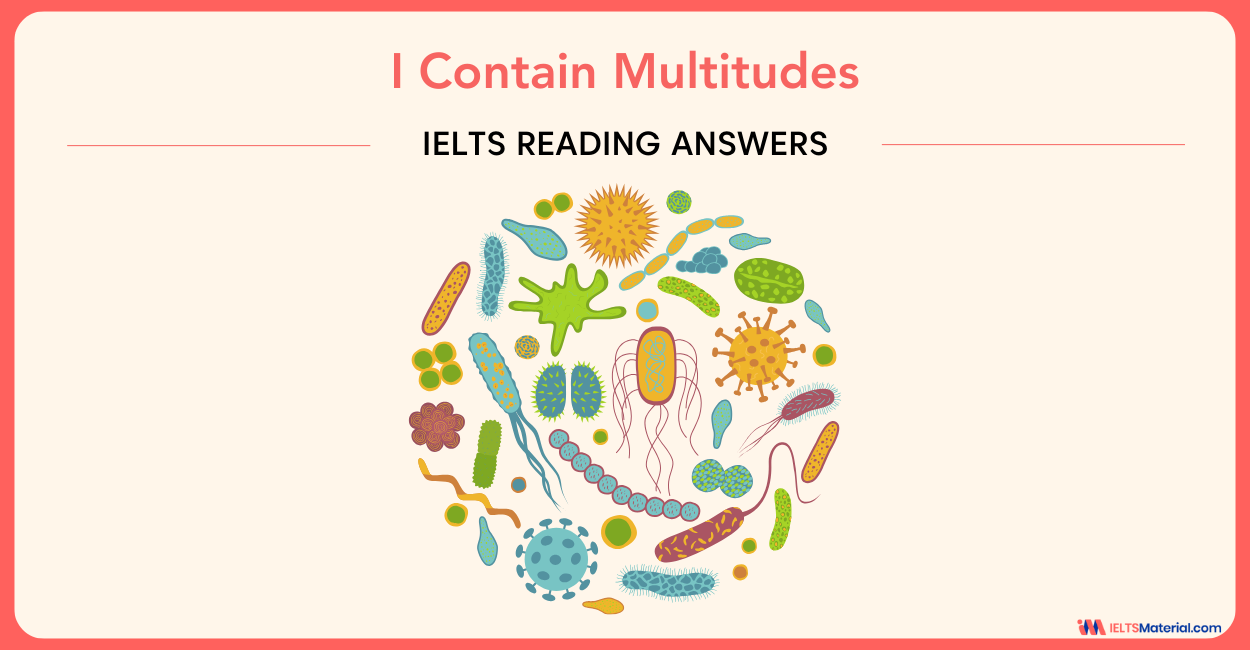
Nehasri Ravishenbagam
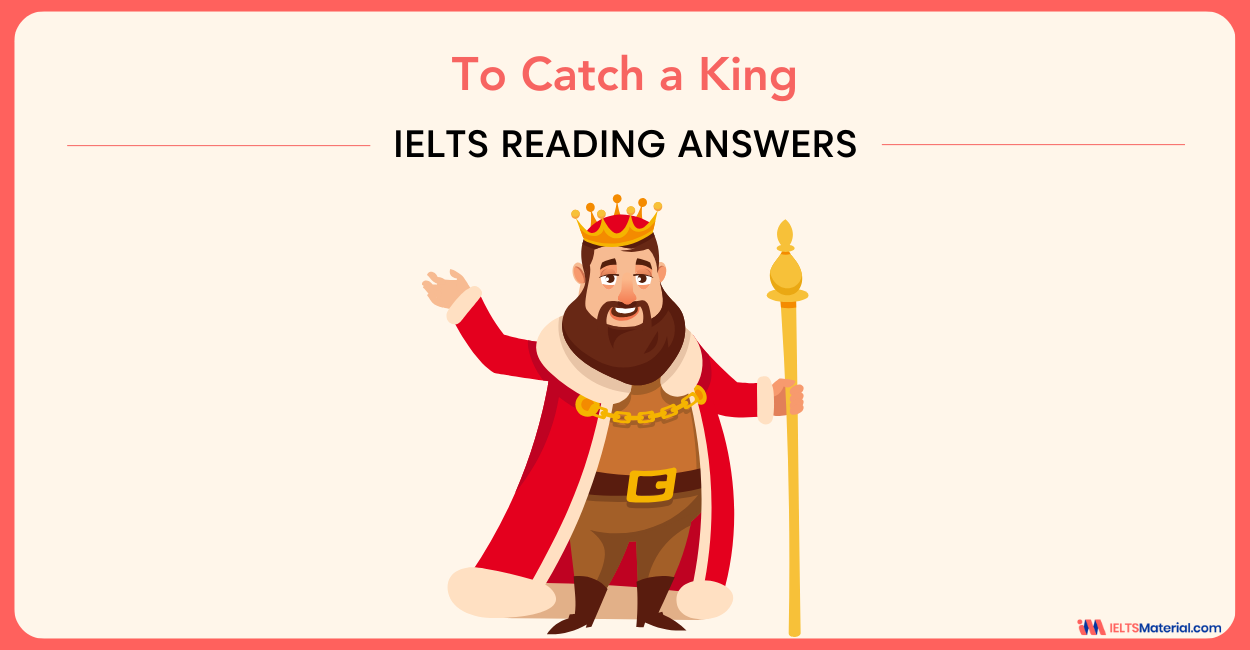
Nehasri Ravishenbagam
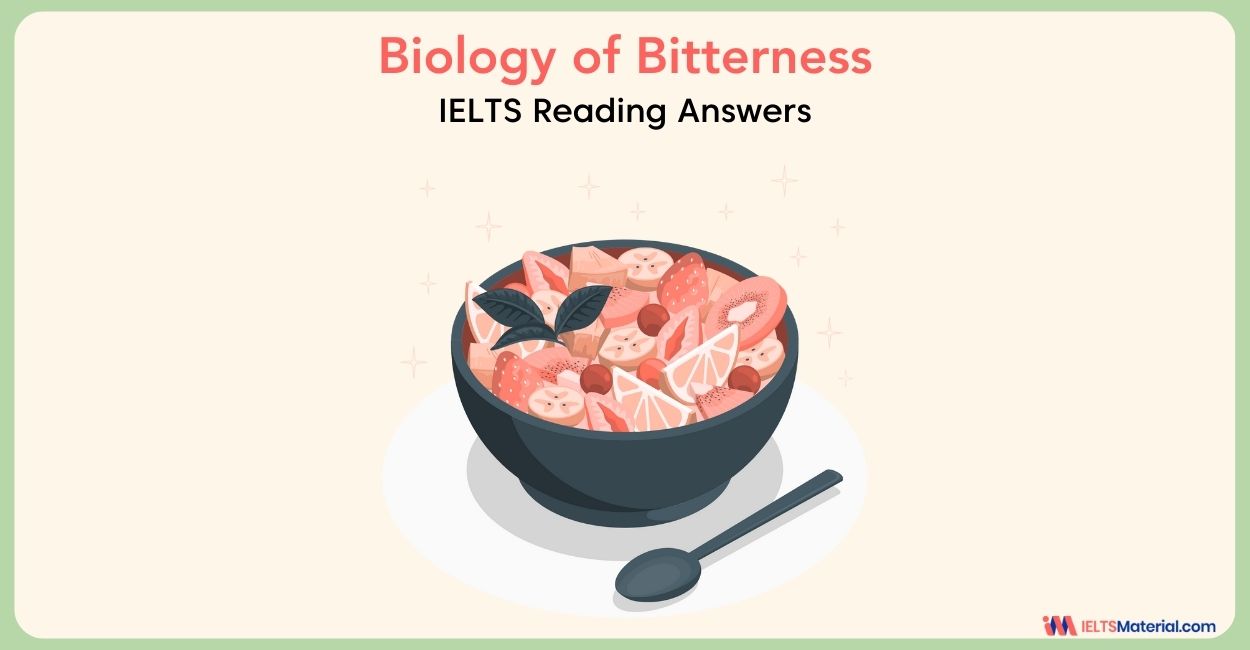
Kasturika Samanta







Post your Comments